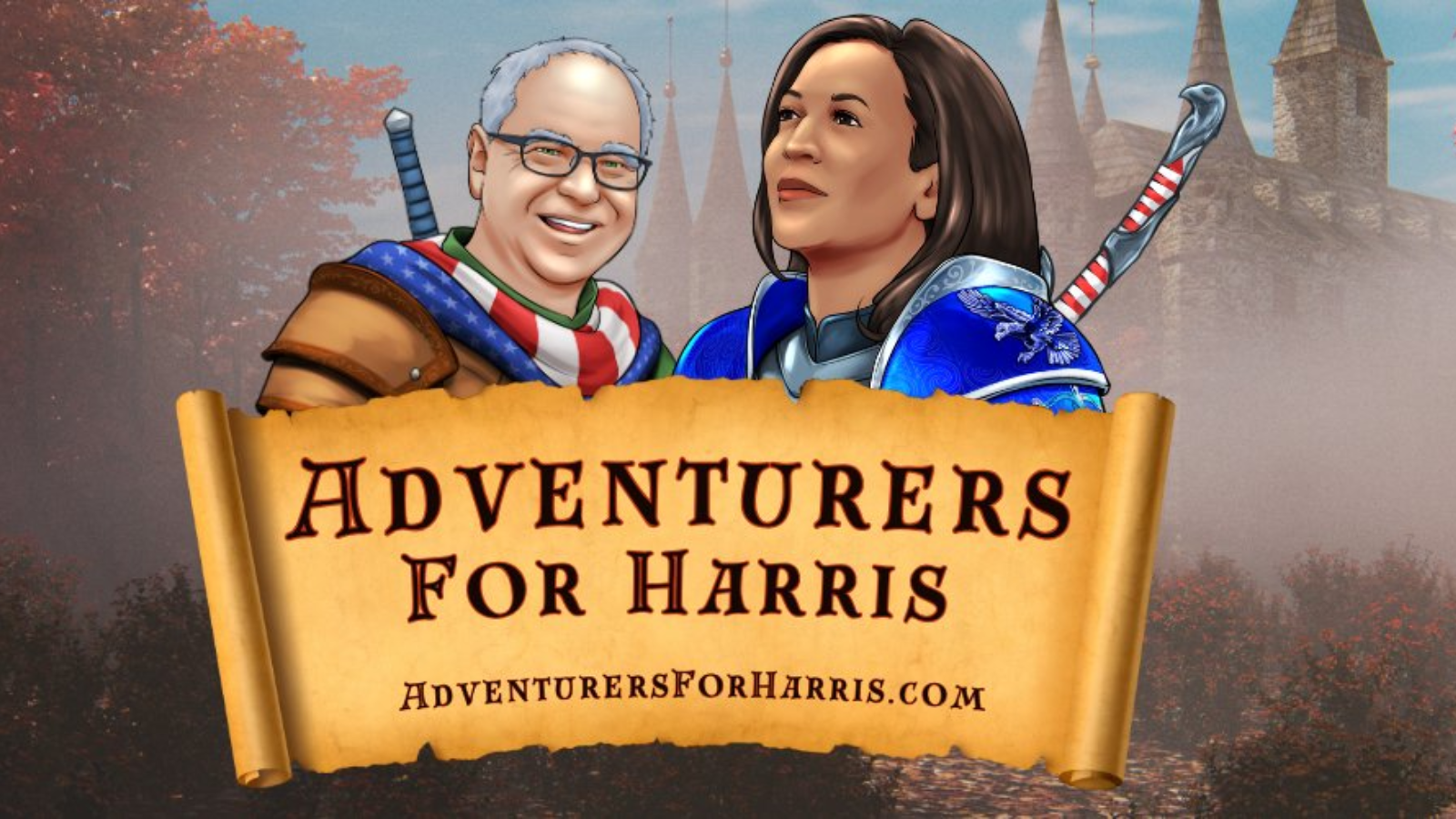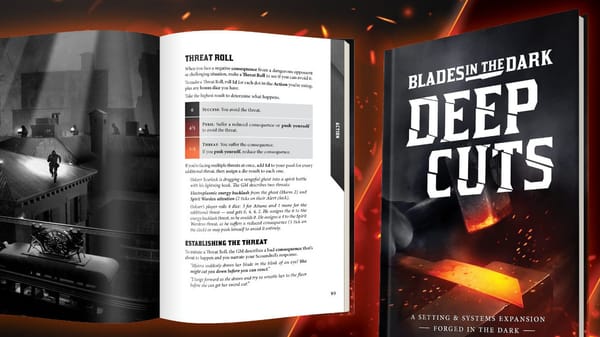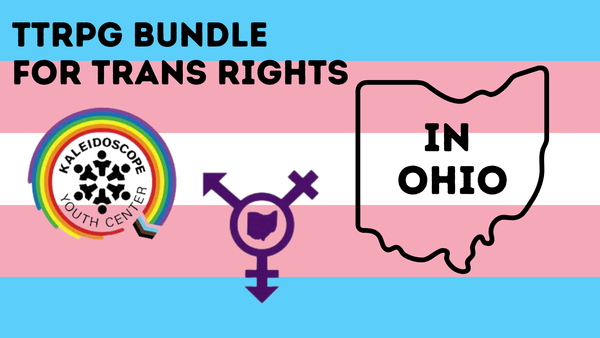Rolling a Nat 20 will not save the American Project
Adventurers for Harris dodges technical disaster but not the moral pit of American politics

Fifteen days before the US presidential election, Epic Immersives hosted the second installment of the Adventurers for Harris fundraiser one-shots. The first, held in September, raised over $65,000 for the Harris campaign. In partnership with the tabletop media studio Good Time Society, actual players such as Aabriya Iyengar, Becca Scott, and Anjali Bhimani; alongside film actors Sean Astin, Matthew Lillard, and Bex Taylor-Klaus raised funds for the Harris-Walz campaign by inviting viewers to vote for the direction their story would take.
If this sounds familiar to a certain stage production Rascal reviewed earlier this year, that’s because Epic Immersives founder Steve Boyle said it was directly inspired by Twenty Sided Tavern. While I don't think the story of Adventurers for Kamala was really the point, it was a fun romp of a game and better than my experience with its messy inaugural livestream. More importantly than the special’s merits as a work of art is its purpose as a political marketing and mobilizing tactic. There are myriad insights this specific event offers into the state of actual play, of Millennial and Gen Z culture in politics writ large, and the fine line between organizing community power and doing just enough to anesthetize a discontented liberal populace.
Admittedly, Sunday’s installment of this fundraising effort went much smoother than its predecessor—the first event, filmed in an empty dinner theater-style venue, faced a number of technical difficulties that made it nearly unwatchable, issues which were resolved by moving the second one to a virtual stream. Aside from significant audio problems that visibly frustrated the players, the video’s delay rendered the voting element of the game (it’s primary thematic purpose) largely moot for people who had paid $35 to influence their parasocial faves. I don’t mean that flippantly. All of the performers in both games are actively leveraging their nerdy audiences: largely hyper-engaged, left-leaning, millennials who are willing to pay for both access to these celebrity figures and to feel like they're contributing to a greater cause. In the wake of the 2011 Citizens United supreme court case, where corporate financing of politicians became protected speech, grassroots efforts to raise money and political engagement has become essential to electoral politics.





